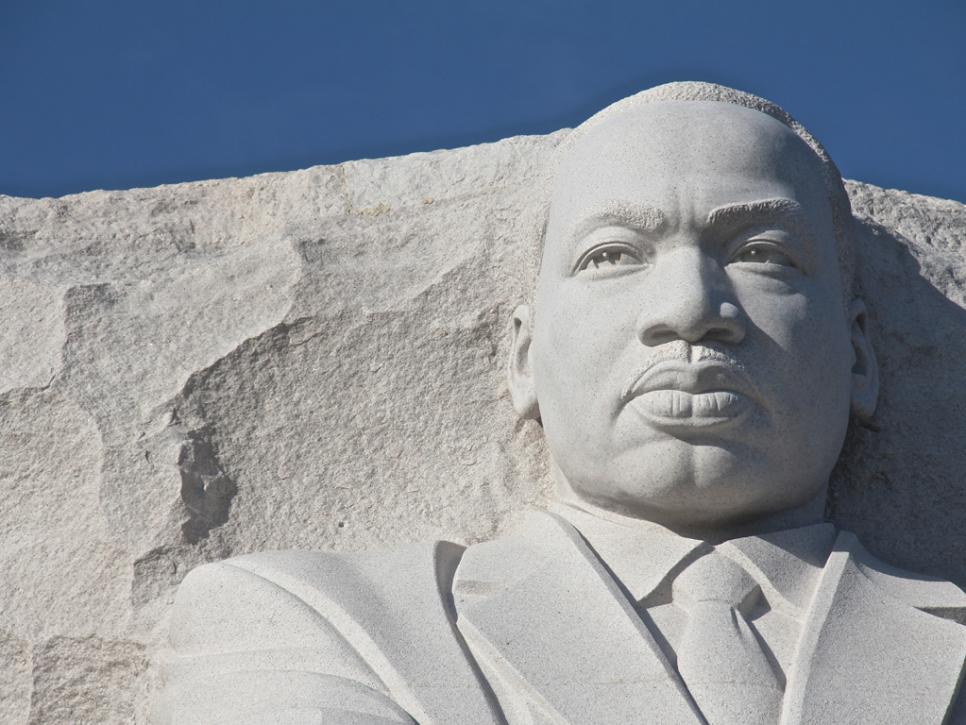
No? I don’t know? Maybe?
As the country becomes more polarized around the issues of race & politics, I’ve found myself with an almost desperate need to understand why so many, including those in my personal life, are willing to ignore or even embrace actions that would previously have been unacceptable (to nearly everyone), regardless of their party affiliation.
On this Martin Luther King Jr. Day, I’m reaffirming my commitment to finding an answer to this question in 2022, and to hopefully becoming a bridge to help us overcome this current scourge of defiant racism and silent complicity in America.
I have no idea why I’m hard-wired to care about these issues. It would certainly make navigating these times a much easier task if I didn’t. But as I get older, it seems to be my calling to stand up as a human who gives a shit about others; regardless of who they are and whether or not they look like me. I love my country dearly, and hate seeing it go down this path of having to live alongside those who find joy in the pain of others who are different; or worse, who feign caring yet still vote for politicians who legislate hate.
Borne of frustration and anger, my previous attempts at having a conversation around these issues weren’t successful. I’ve begged, berated, pleaded, and cajoled those within earshot to participate and, yes, likely been much too confrontational in those efforts. Then again, I don’t think it’s anyone’s first instinct to ask politely for help when there’s a fire, and our house was burning long before George Floyd’s murder.
[Note: There will be a concerted effort to be less so this time around.]
So where do I go from here?
I think the first step before re-starting this journey is to acknowledge and highlight where we currently are as a country. Frankly, it’s not a very good place. With respect to ‘social justice’, we’re no better now than we were before the era of ‘Black Lives Matter’ protests. Black and brown people are still being killed disproportionately, and the BLM moniker has become a political truncheon against Dem candidates.
In the aftermath of the 2020 Presidential election (where minority voters pushed Biden over the edge for the win), republican state legislatures across the country have enacted laws designed specifically to deter/stop minorities from voting. If that fails, they have even passed legislation allowing them to void results they don’t like.
Even setting politics aside, we’re in an awful state concerning race relations. Rather than ushering in a new era of inclusion, the Obama years left us in a place with many whites openly lashing out as they feel their political power slipping away. The most maddening (or sickening, depending on your perspective) aspect is that they are doing so loudly and proudly with encouragement from the republican party.
This leaves us in a place where we can’t even begin to talk about race without talking about our politics, and vice versa. I’m generally loathed to include tweets as a source for legit news, but feel that the examples below are a good indicator of where we find ourselves in #American2022:
These behaviors and discussions are no longer outliers. THIS is America. A country where politicians and policymakers openly discuss the fallacy of white people as oppressed, and craft legislation to remedy the problem. A country where the klan is portrayed as merely a social club, and teachers can’t refer to the tens of thousands of Blacks lynched by them. A country where Blacks can be killed on video, and the outcome of their murder’s trial can still be in doubt. A country where being a selfish and awful human being in the middle of a pandemic is equated with heroism.
All of these things are America, and it will be my ongoing effort to understand what is happening and, perhaps, effect change in my little corner of it.
Next up in Part 2, the anatomy of a failed discussion on race and politics.